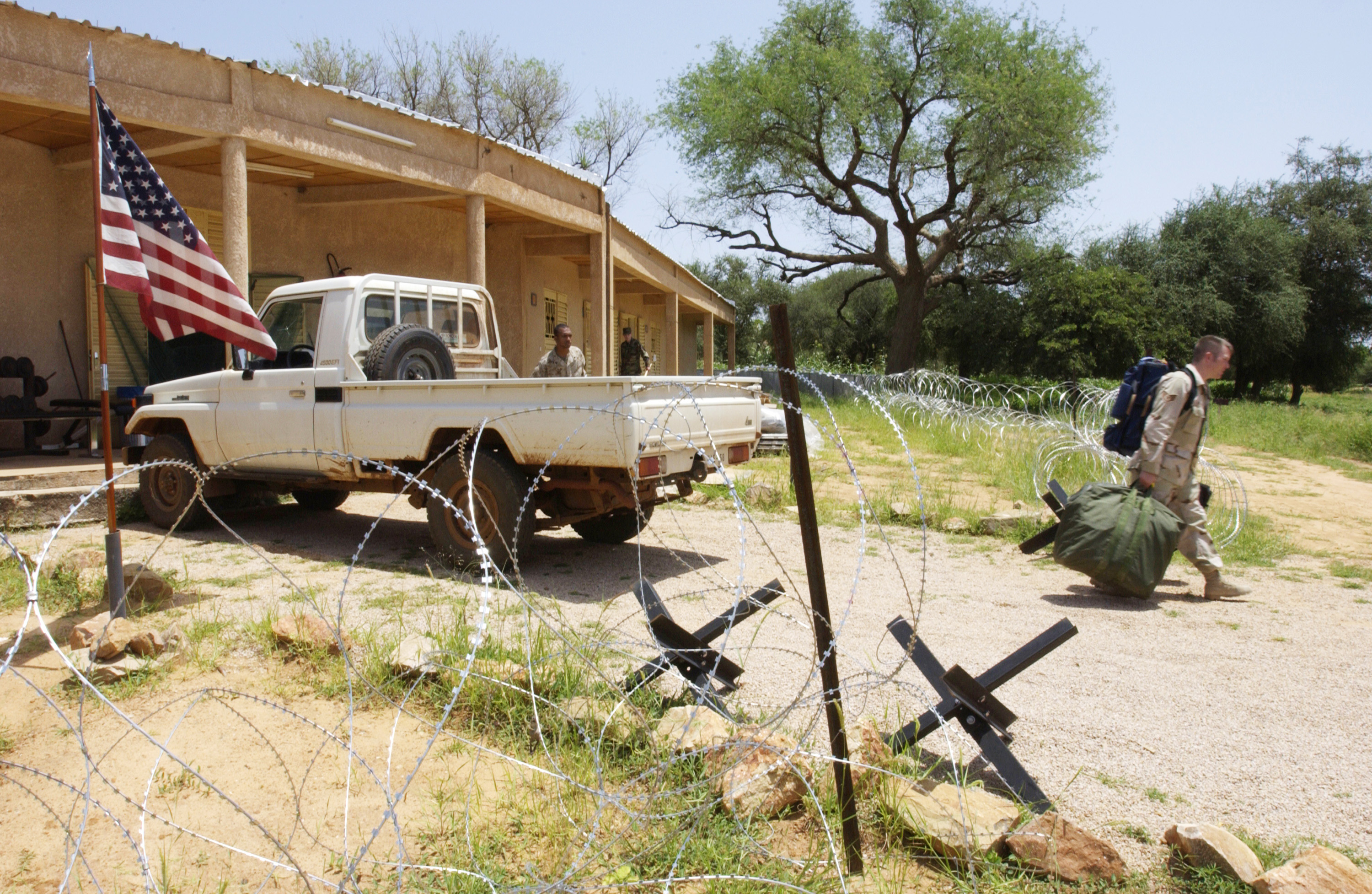Last week, Canadian Prime Minister Justin Trudeau was forced to apologize for a deeply embarrassing episode that took place during Ukrainian President Volodymyr Zelenskyy's recent visit: Canada's Speaker of the House invited a one-time member of a Ukrainian SS Waffen division into Canada's Parliament, and the former Nazi soldier, now 98-years-old, was given a thunderous standing ovation by a packed House of Parliament.
Canadian Parliament and Zelensky give a standing ovation to Yaroslav Hunka, who fought for the 14th division of the Waffen SS
— The Post Millennial (@TPostMillennial) September 24, 2023
pic.twitter.com/vtplp36hIA
Condemnation was swift—hence Trudeau's apology. But what everyone missed about this deeply embarrassing episode is the irony, for Trudeau has a penchant for seeing Nazis everywhere except right under his nose. The same Justin Trudeau who took part in a standing ovation of an actual Nazi in Canada's House of Parliament allowed hard-working Canadians to be roundly smeared as Nazis for simply disagreeing with him politically during the Trucker's Freedom Convoy.
The Freedom Convoy erupted in January of 2022 after tens of thousands of Canadians, sick of Trudeau's authoritarian approach to COVID-19, took to the streets of Ottawa in a mass act of civil protest led by truck drivers. For this, the Trudeau administration labeled them as racists and fascists—and then invoked the Emergency Measures Act for the first time in Canada's history, suspending the civil liberties of Canada's citizenry.
"Freedom of expression, assembly and association are cornerstones of democracy, but Nazi symbolism, racist imagery and desecration of war memorials are not," Trudeau infamously said of the largest peaceful protest in Canada's history, before accusing a Jewish Member of Parliament of "standing with those who wave Nazi flags" for her support of the protest.
Trudeau appeared to be referencing a single swastika flag in a protest of over 10,000 souls—the masked waver of which was never identified. The Canadian government also became convinced that a veteran named Jeremy MacKenzie was using the Freedom Convoy to lead a violent overthrow of the Trudeau government. After the Convoy, MacKenzie was charged with assault, pointing a firearm, using a restricted weapon in a careless manner, and mischief. Yet none of the charges against him were related to the Convoy, and most have since been dropped.
Four men caught in the government's dragnet have not been as lucky. In February 2022, Anthony Olienick, Chris Carbert, Christopher Lysak, and Jerry Morin were arrested in separate locations throughout Alberta on allegations that they had conspired to murder Royal Canadian Mounted Police officers in Coutts, Alberta, a second protest site, as part of MacKenzie's group. And though three of the men had no criminal records, they were all denied bail and have been languishing in prison for nearly 600 days. (Crown Prosecutor Steven Johnston declined a request via email for an interview. The RCMP did not reply to a request for comment.)
The evidence against the Coutts Four as it's been reported in the Canadian media is thin at best. The Crown alleged that Carbert and Lysak both had ties to MacKenzie's group "Diagolon," which planned to replace the Canadian government with a racist, ethnonationalist state. But according to those close to the men, Carbert and Lysak's "ties" amounted to listening to MacKenzie's podcast, and Lysak met him just once at a BBQ. Moreover, the podcast isn't racist, nor is Diagolon even real; it's a mix of comedy and criticism of government overreach.
The government argued that Olienick was violent because he said he "will die fighting for what I believe is right," but many people feel that way about protecting their civil liberties. The government also argued that a picture of a Canadian flag in a saloon in Coutts that Carbert posted to Facebook was proof of the conspiracy, yet thousands of people attended the rally in Coutts, many of whom signed the flag.
Undercover police officers at the Coutts protest alleged that Olienick and Carbert discussed the delivery of a heavy package, which officers said contained guns. But according to an application the RCMP filed for a search warrant, the men were discussing hockey equipment, an electric guitar, and toy trucks for the many kids at the protest—which the RCMP deemed was code for weapons.
Police later found firearms, 36,000 rounds of ammunition, and industrial explosives at Olienick's home—but according to friends and family, the guns were legally obtained, the ammunition is the kind commonly used in rural Alberta to shoot gophers, and Olienick's property sits on a gravel mine; he and his father used the explosives to mine gravel.
The guns that police seized from Lysak's trailer were similarly legally obtained and registered. And of course, there's the fact that the charges against MacKenzie, the alleged mastermind of the operation, were completely unrelated to Coutts or the Trucker's Convoy—and most have been dropped.
Yet despite the thinness of the evidence against them, the Canadian media and the Canadian people seem content to believe the worst of these men, who have been taken from their families for over 19 months.

I was not. I was able to speak to each of the Coutts Four from prison over the course of a few weeks this summer in the first interviews they have given to the press. The men Canada is holding as political prisoners are all working-class family guys whose lives were upended by government overreach and lies. Rather than taking the easy way out by pleading guilty to crimes they say they did not commit, all four are looking forward to having their day in court and proving their innocence.
*
Jerry Morin is a 42-year-old power lineman from Alberta. He was on his way to work near Calgary hundreds of kilometers from the Coutts protest site on the morning of February 14, 2022, when he was pulled over and arrested by Calgary City cops and RCMP.
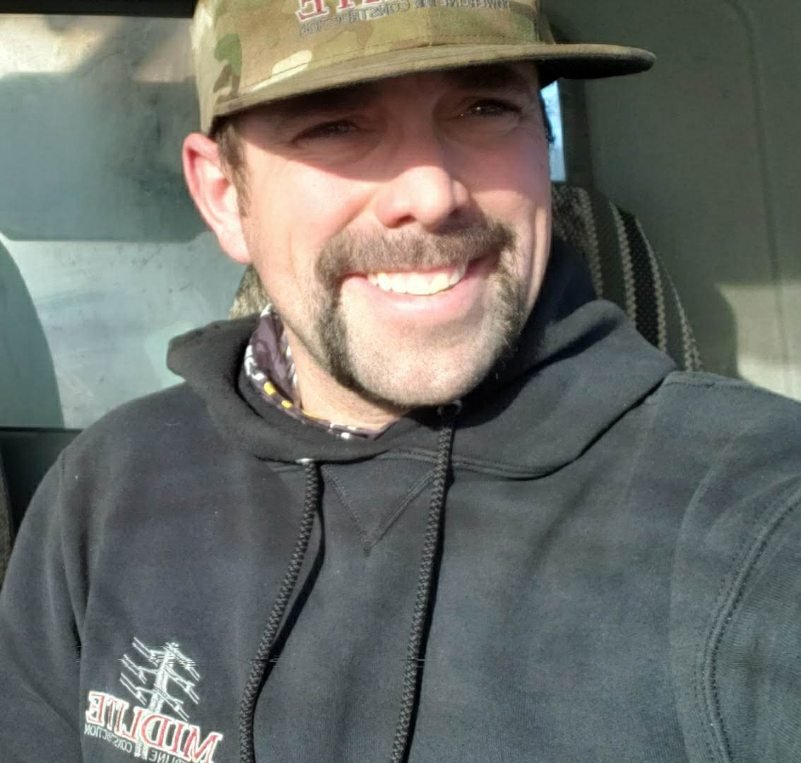
Morin's participation at the Convoy had amounted to bringing groceries to the protest site in Coutts to feed the protesters, and bringing his friend, the country singer Lyndsay Butler, to perform. Morin was charged with conspiracy to commit murder, mischief, and possession of a weapon for a dangerous purpose.
Morin denies all charges against him. He says he doesn't own a single one of the weapons the police say were seized at the Coutts site. Yet for inexplicable reasons, Morin was denied bail. The managers of the Calgary Remand Center have kept Morin in a maximum security unit normally reserved for gang members, and until very recently, they refused to allow Morin's partner to visit him; the couple did not see each other for 19 months, a shockingly punitive separation for a man who has yet to face trial or be convicted of any charges. He still has not been allowed to see his children, who are 18, 13, and 10, nor his step-daughter, who is 23. He estimates that he has spent over 70 days in solitary confinement as part of his nearly 600 days in custody.
Somehow, Morin has stayed strong throughout. I asked him where this strength comes from. "My principles, which led us to stand up for our fellow Canadians at Freedom Convoy in the first place," Morin told me.
Offered a plea deal, Morin categorically rejected it. "We would never plead guilty to crimes we did not commit to appease a government that abused us and continues to do so," he told me.
Tony Olienick is 41 and owns a small construction company in Stavely, Alberta. He is single and lives on a farm with his 80-year-old mother. Olienick went to Coutts to join the protest with his friends and business associates, and what he experienced was an overwhelming feeling of shared love. "It was an experience greater than myself," he told me.
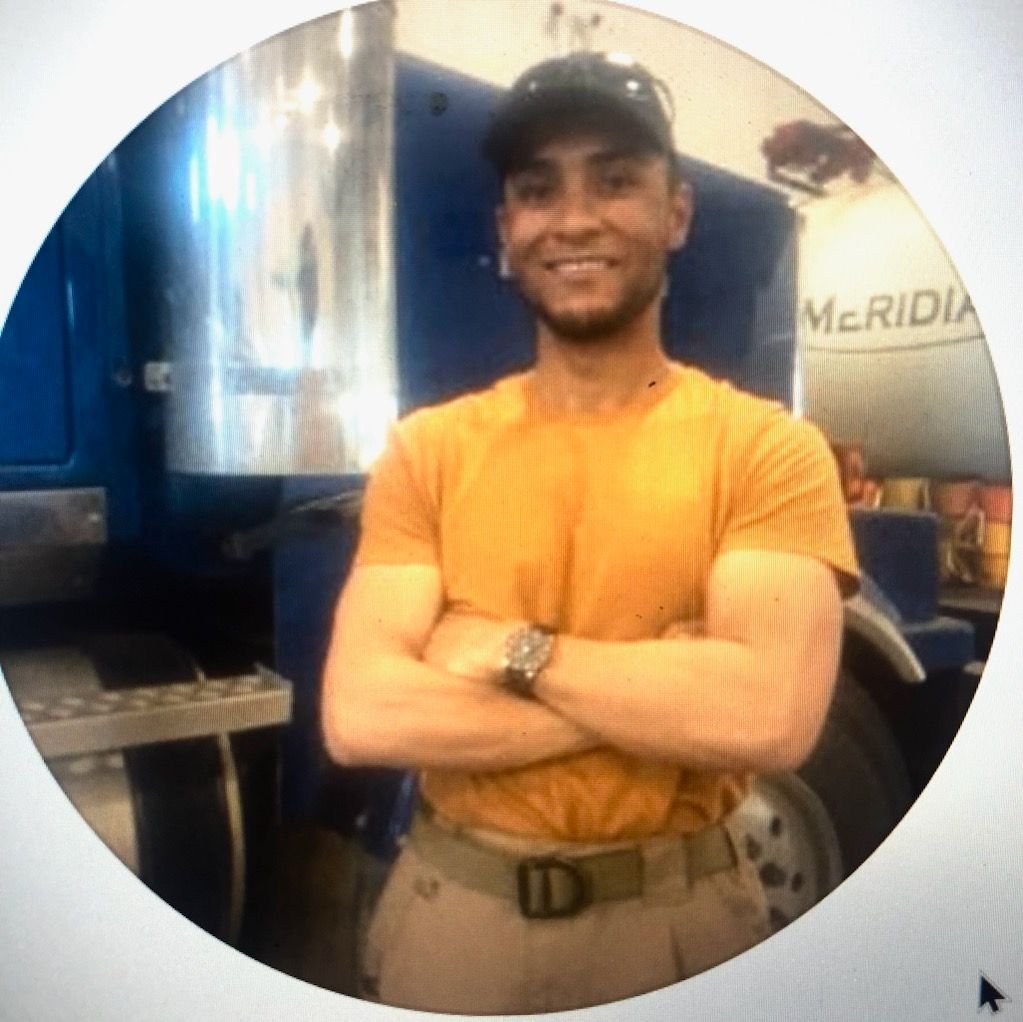
Olienick was arrested February 14 in Coutts, the day Trudeau invoked the Emergency Measures Act—after the protesters had already begun to leave the site. He faces the same charges as Morin: conspiracy to commit murder, mischief, and possession of a weapon for a dangerous purpose. Like Morin, Olienick rejects all of these charges and cannot recall ever having heard of Jeremy MacKenzie before his arrest.
Olienick has had a rough time in custody. He says he has spent 40 days in solitary confinement. He suffers from Small Intestine Bacterial Overgrowth, which requires specialized probiotics to manage. When Olienick was moved from one facility to another, his probiotics were cut off. He lost a lot of weight and has been in pain ever since, though he has recently been given access to a smaller dose of his medication.
Despite these challenges, Olienick remains upbeat. He says he has been inspired by the community that has come together to help his mother while he remains in custody, and by the tiny group of people who go to bat for him and his co-defendants.
He thinks his experience has given him a perspective that many lack. "I feel like I'm more free stuck behind these walls than many people on the outside who are living scared and trapped in themselves," he told me.
Chris Lysak, a 49-year-old master electrician from Lethbridge, Alberta, also rejects the charges against him. Lysak has two girls, aged 11 and nine, who have been staying with his 73-yeear-old father Mike during his detention. Mike wears hearing aids and has trouble communicating, but that didn't stop journalists from showing up at his doorstep and seeking comment about Lysak's arrest. The result was a piece which Mike says took his words out of context.
"They're punishing my family and my kids," Lysak told me. "I don't care what they do to me, but I wish they would leave my Dad and my kids alone."
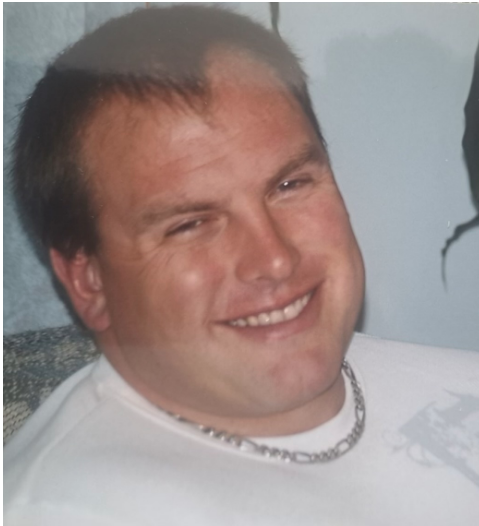
Lysak is a big guy: He's six foot five and has size 15 feet. While in remand, he was not given the correct size shoes and had to cut the toes off of the shoes he got so his feet would fit. He also has trouble sleeping, and they will not give him an extra mattress to accommodate his build.
Lysak has also been charged with conspiracy to commit murder, mischief, and related weapons charges, as well as with uttering threats, the result of an out of context video clip, he says. Like Morin and Olienick, Lysak reject all charges against him. He had two legal hunting rifles with him as he often does, since Alberta pays a bounty for coyotes, and it's common practice in rural areas for people to carry them.
Lysak and Chris Carbert are the only two of the accused who knew each other prior to their arrest; they've been lifelong friends. A 46-year-old contractor from Lethbridge, Alberta, Carbert wishes he could ask the prosecution one question: "Where's your evidence?"
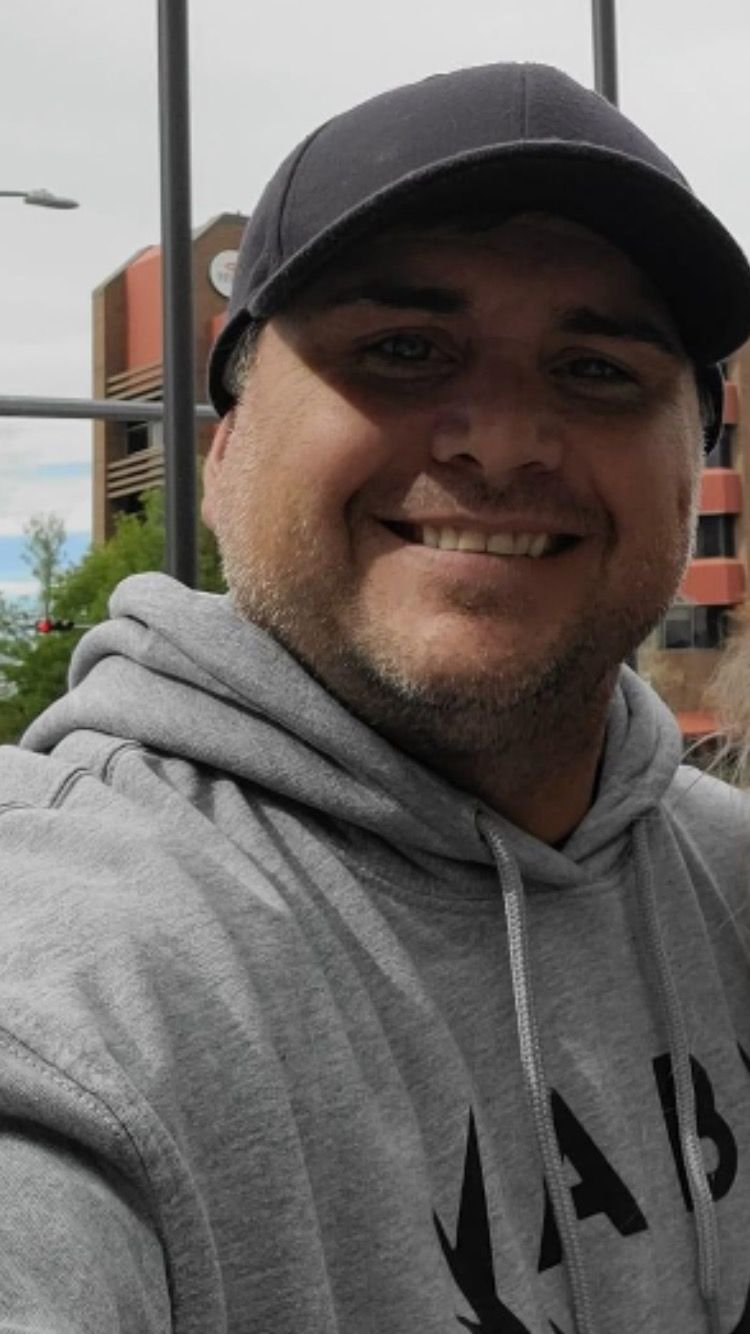
His trial is set for early 2024, but Carbert has already missed so much. He is a full-time single dad to a son and daughter, aged 11 and nine, who, like the families of the other men, are also being punished by the denial of bail to their father. While he has been in custody, many members of Carbert's family have passed on, including a nephew, two uncles, an aunt, and his own father and brother. Carbert was not issued temporary leave to attend any of their services, though he would not have gone if it meant going in chains and shackles.
Carbert leads a non-denominational Bible study group at the Lethbridge Correctional Centre, which has given him strength through this ordeal. His mother, Betty Carbert, has helped look after his children during his time in remand. A physiotherapist who spent 20 years as a bus driver for the disabled, Betty has been shocked by everything that's gone on with her son.
"What happened with Chris opened my eyes to a lot of things that I did not think could or would ever happen in Canada," she told me.
*
How did this happen in Canada? Documents obtained under the Canadian equivalent of a FOIA request show that the idea that the Coutts Four were involved in Diagolon and the idea that Diagolon isn't a comedy podcast but a violent extremist group originated with a nonprofit group called the Canadian Anti-Hate Network. The Diagolon "threat" drummed up by the nonprofit went a long way toward justifying Trudeau's invocation of The Emergency Measures Act. A lot hangs on the Crown being able to prove that the Coutts Four were engaged in a plot whose threat justified suspending the civil liberties of a western democracy.
This is why those who support the men believe they are being held without bail on trumped up charges: To release the Coutts Four would be to admit not just to the fact that Canada imprisoned men unjustly and denied them bail, but to call into question Trudeau's every action since the beginning of the Freedom Convoy.
Unfortunately, Canada's media have been shamefully silent on the Coutts Four. Happy to report on the initial arrest and repeat the spurious allegations of the RCMP and the Crown, they have failed to ask deeper, fundamental questions about how this situation flies in the face of the rule of law and the presumption of innocence, or why in a country where it feels like almost everyone is granted bail, these men have been denied it.
The Coutts Four are aware of the wider context which informs why they are being treated the way they are. They know they are political prisoners, the result of today's so-called "progressive" regimes inability to deal with opposition to their programs, and the Western world's refusal to address the complaints voiced by populist movements like Brexit or The Yellow Vests.
The four men arrested in Alberta represent the very best Canada has to offer: competent working-class guys that make our material world function. They are unjust prisoners of the very worst—the kind of people who see imaginary Nazis in the working class while giving thunderous applause to Nazis who are very real.
Gord Magill is a trucker, writer, and commentator, and can be found at www.autonomoustruckers.substack.com.
The views expressed in this article are the writer's own.
Uncommon Knowledge
Newsweek is committed to challenging conventional wisdom and finding connections in the search for common ground.
Newsweek is committed to challenging conventional wisdom and finding connections in the search for common ground.
About the writer
To read how Newsweek uses AI as a newsroom tool, Click here.




